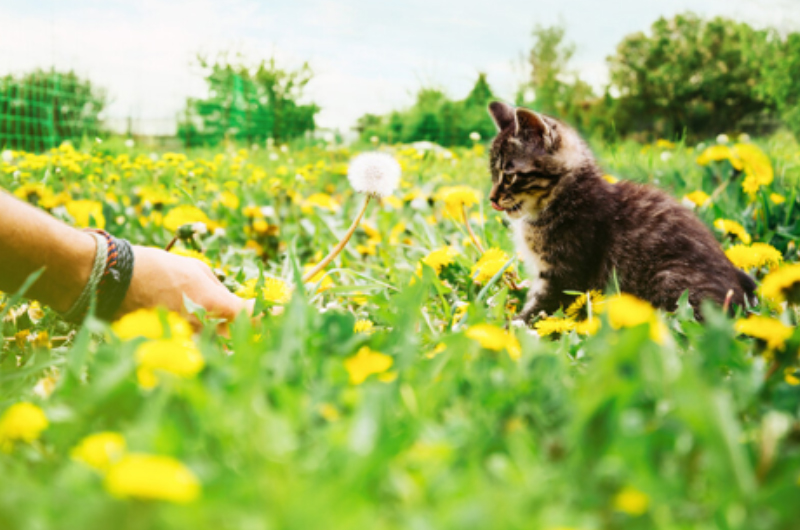
Welcome to Our Blog

Top Spring Environmental Hazards for Pets to Avoid
June 2020 | Posted by Tender Care Animal Hospital
Here in Peoria and Morton, we are packing away the snow gear and preparing to leave the chill of the long Illinois winter behind. As we leap into spring, it's important to remain focused on pet care and be mindful of the hazards in the environment and around the house that might harm our furry family members. Follow along as the veterinarians at Tender Care Animal Hospital breaks down the top hazards to our pets during this time of the year.
As Mother Nature Blooms, So Too Do Environmental Risks
As the snow melts away and plants start to bloom, it's important that we remain mindful of the hazards Mother Nature holds for our pets, especially now that the warmer weather means more time outside and more chance to be exposed to dangerous plants and pests.
Poisonous Flora
Springtime brings the blooming of a fresh crop of plants and flowers in our yards. When planning out your flower beds, remember that certain types of plants are poisonous to our furry friends. While it might be the right season, a yard with pets isn't the place for lillies, bluebells, daffodils, or azaleas. Do your research to make sure what you plan to plant will be safe for any pets who will have free run of the yard. Also remember to keep an eye out for poisonous wild flowers and vines that might grow in your yard, such as ivy plants.
Be Mindful of Yard Maintenance Products
Establishing the foundation for a beautiful lawn in the spring often includes mulching and the use of feed and pesticides to keep yards and gardens pest-free and well-fed. If you plan to allow your pets to roam free throughout the yard, however, you need to ensure you're using pet-safe products. Cocoa-shell mulch is as dangerous to your dog as a bar of chocolate left within reach, while slug pellets and pest sprays containing certain chemicals can be extremely dangerous.
Stung or Simply Allergic?
If your pet seems to be having respiratory problems or skin irritation at the onset of spring, first check to make sure they weren't stung by a wasp or bee. If they were stung by a bee, pull the stinger and treat the affected area with a mixture of baking soda and water. If it's likely they were stung by a wasp, treat the affected area with lemon juice to neutralize the sting. Keep an eye on your pet and if they seem to be having an adverse reaction to the sting, especially if they were stung on the head or neck, seek care from your veterinarian. Ruling out insect stings, it is possible that your poor pet might have seasonal allergies. Allergies can be easily verified with a quick trip to our animal care clinic, where a pet-care certified veterinarian can prescribe the necessary ongoing treatment.
Stay Protected Against the Most Dangerous Pests
The transition to spring means those of us who have been hiding away all through winter now find it warm enough to come out and play more often. Unfortunately for us and our pets, that means fleas, ticks, and mosquitos, all of which can carry one deadly disease or another. It's important going into spring to have an established regimen of treatment in place for keeping ticks and fleas at bay, and some form of preventative treatment in place for heartworm.
Let Your Veterinarian Give You the Best Pet Care Plan For Spring
If you're a pet owner in or around Peoria or Morton, your best bet at ensuring your pet is ready for the change in seasons is to make an appointment with our professional veterinarian team before spring is fully upon us. No matter what the dangers of the season, our pet care professionals can help you and your pet navigate them safely.

© 2013-2020 Tender Care Animal Hospital